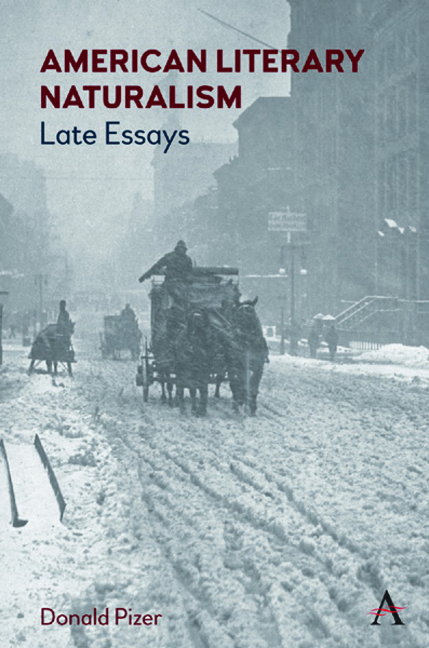10 - Stephen C. Brennan: Interview with Donald Pizer
Published online by Cambridge University Press: 22 February 2022
Summary
In the preface to his recent edition of Hamlin Garland, Prairie Radical: Writings from the 1890s, Donald Pizer notes that while Garland made little money from his early work he did win considerable renown “for his pioneering efforts to replace depictions of his region as a land of bucolic bliss with truthful accounts of its hardship, poverty, and cultural isolation, conditions that he knew firsthand” (vii). Since Pizer began his scholarly career in the mid-1950s with a series of articles on Garland that culminated in the seminal study Hamlin Garland's Early Work and Career (1960), this new collection gives his five and a half decades of scholarship a kind of symmetry. There is also symmetry between Pizer's scholarly project and Garland's early work, for Pizer too has been a pioneer in a career-long effort to replace misconceptions, in his case about American literary naturalism, with more truthful accounts derived from firsthand experiences of the texts themselves.
At this point, an overview of Pizer's career would be in order. But since the lead essay in the inaugural issue of Studies in American Naturalism provides such an overview (Brennan), it seems appropriate to focus here instead on Pizer's own commentary—in his published work, in recent interviews, and in personal correspondence—though some overlap with the earlier essay is inevitable. It would be impossible to capture in a brief essay the range of thought in Pizer's eleven books, sixty-odd articles, and dozens of reviews, lectures, and introductions to editions and collections. Still, one can discern in his more theoretical statements two central beliefs: that American literary naturalism is best understood when read as literature rather than as philosophy or ideology, and that it is a species of humanism.
In casual conversations at recent conventions and in the interview I conducted on December 26, 2009, in his Tulane office, Pizer several times expressed regret at the recent tendency among critics to treat American naturalism mostly in light of some current theory of discourse rather than as literature. As I began this essay, it struck me that I didn't know precisely what he meant by literature. Drawing upon my reading of most of his work, I inferred a definition and asked him in an email whether I had it right.
- Type
- Chapter
- Information
- American Literary NaturalismLate Essays, pp. 137 - 148Publisher: Anthem PressPrint publication year: 2020



